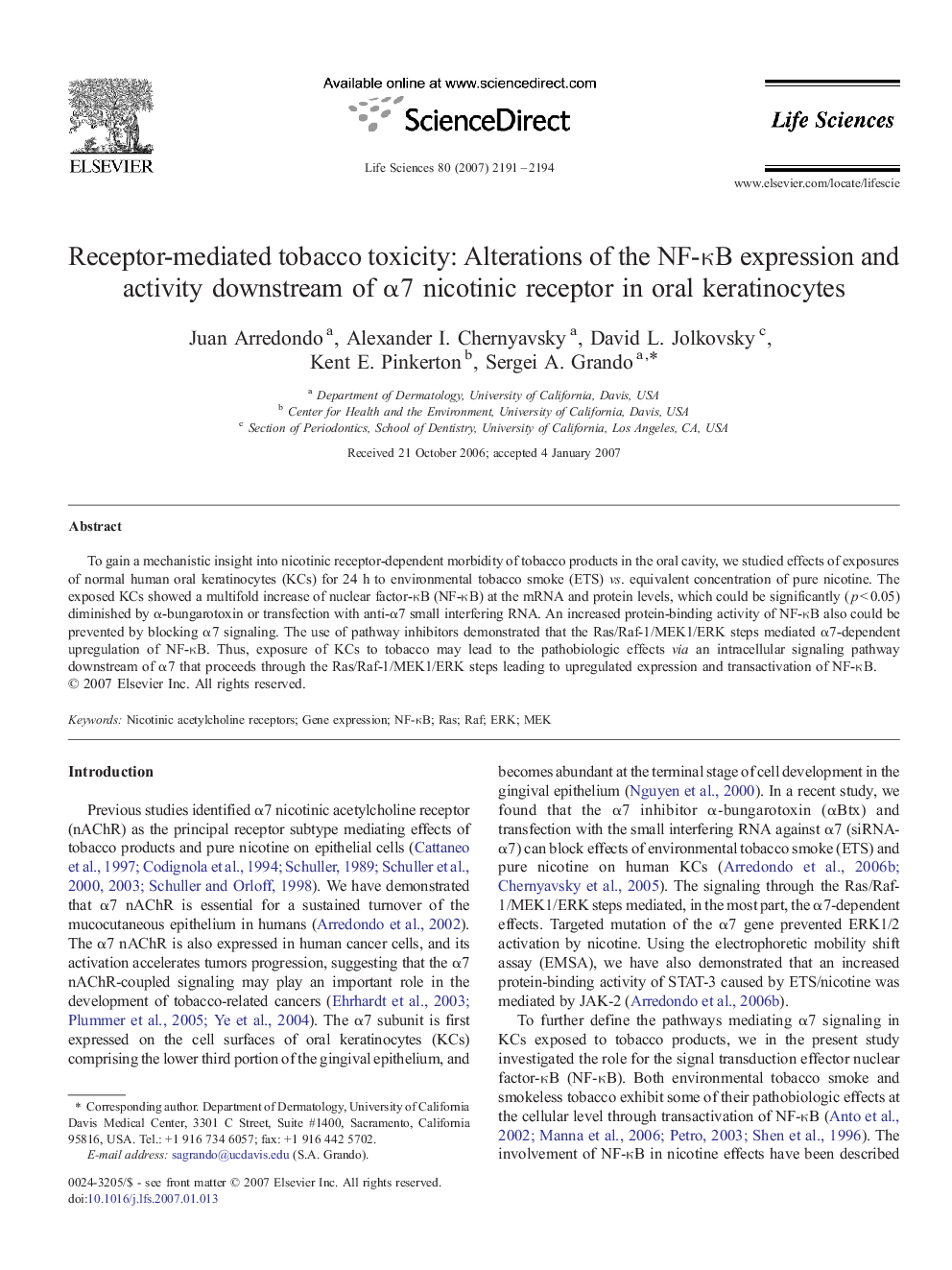| Article ID | Journal | Published Year | Pages | File Type |
|---|---|---|---|---|
| 2553549 | Life Sciences | 2007 | 4 Pages |
To gain a mechanistic insight into nicotinic receptor-dependent morbidity of tobacco products in the oral cavity, we studied effects of exposures of normal human oral keratinocytes (KCs) for 24 h to environmental tobacco smoke (ETS) vs. equivalent concentration of pure nicotine. The exposed KCs showed a multifold increase of nuclear factor-κB (NF-κB) at the mRNA and protein levels, which could be significantly (p < 0.05) diminished by α-bungarotoxin or transfection with anti-α7 small interfering RNA. An increased protein-binding activity of NF-κB also could be prevented by blocking α7 signaling. The use of pathway inhibitors demonstrated that the Ras/Raf-1/MEK1/ERK steps mediated α7-dependent upregulation of NF-κB. Thus, exposure of KCs to tobacco may lead to the pathobiologic effects via an intracellular signaling pathway downstream of α7 that proceeds through the Ras/Raf-1/MEK1/ERK steps leading to upregulated expression and transactivation of NF-κB.
